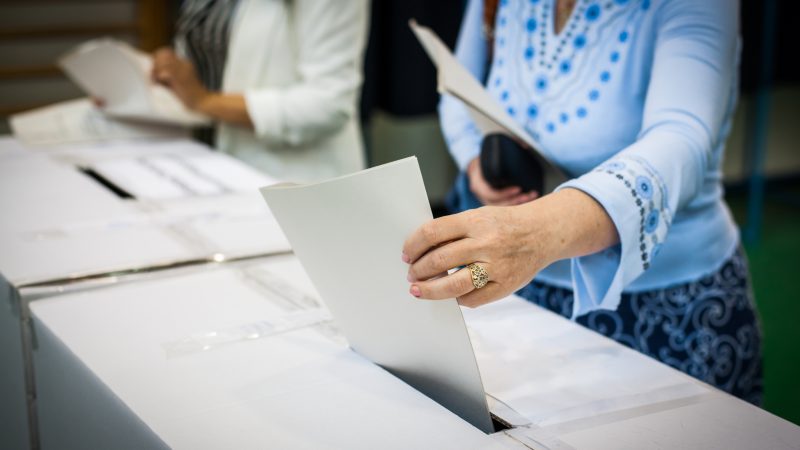
Campaigners have criticised the “staggering” cost of government plans to require photo identification for voting after an official impact assessment reported that the policy could cost up to £180m over the next decade.
The Cabinet Office reported that the policy, which will be debated in parliament this afternoon as part of the elections bill, will cost the taxpayer between £65m and £180m over the next ten years, with a “central estimate” of £120m.
The legislation will require people to show photographic identification, before collecting their ballot paper from a polling station, in all elections in England and for police and crime commissioner elections in Wales and Scotland.
Costs include £55m on new polling cards necessary for voter identification, which will need to be posted in envelopes for the first time, and £15m spent by councils on plastic ‘voter cards’ for those who do not have suitable identification.
Ministers have argued that the measure, which campaigners have warned could disenfranchise more than two million people across the country, is necessary to protect the integrity of the democratic process in the UK.
“Voters must be confident, not only that their vote is theirs and theirs alone, but that their voices are heard and their vote matters. The elections bill keeps our elections free and fair and will ensure democracy across the UK continues to thrive,” minister Chloe Smith said today.
According to the electoral commission, the independent body that overseas and regulates elections in the UK: “The UK has low levels of proven electoral fraud. There remains no evidence of large-scale electoral fraud in 2019.”
595 cases of alleged electoral fraud were investigated by the police in 2019. This figure is not limited to the general election but includes others such as mayoral, local authority and European parliamentary elections.
Most cases recorded were in relation to local elections (362) with 164 cases recorded in connection with the December general election. Of the 595 alleged cases, four led to a conviction and two individuals were given a police caution.
Research suggests that marginalised groups are less likely to have ID, including women, those living in urban areas, the under 20s and over 65s. Driving licence ownership has fallen by 40% among the under 20s since the 1990s.
A Department for Transport survey in 2019 found that 52% of Black people had a driving licence, compared with 76% of the white population. FCA research in 2019 estimated that 1.3 million people in the UK did not have a bank account.
Labour leader Keir Starmer criticised the proposed legislation in his response to the Queen’s Speech in May, telling Boris Johnson that the bill would make it harder for people to vote, “tramples on civil liberties” and “discriminates”.
“The Prime Minister must know that by introducing compulsory voter ID he will suppress turnout. It will disproportionately impact ethnic minorities and it will weaken our democracy,” he said, adding: “Labour will have no part in that.”
17 leading civil society groups including Stonewall, Liberty, the Electoral Reform Society, Operation Black Vote, NUS and Silver Voices urged ministers earlier this year to drop the plans, which they described as “dangerous”.
YouGov research earlier this year found that the proposed measure will most heavily effect areas in the North of England, where its survey found that one in 14 people do not own suitable photographic identification.
“It doesn’t matter how the government tries to dress it up, voter ID is a discriminatory policy which will disenfranchise millions of voters. The Conservatives must ditch this undemocratic policy which threatens to reverse decades of democratic progress,” shadow minister Cat Smith said at the time.
The elections bill will have its second reading today, which provides the first opportunity for MPs to debate the substance of the proposals.




More from LabourList
Reeves bets on patience over populism
‘Energy efficiency changes must work for older private renters’
‘Labour’s creative destruction dilemma’